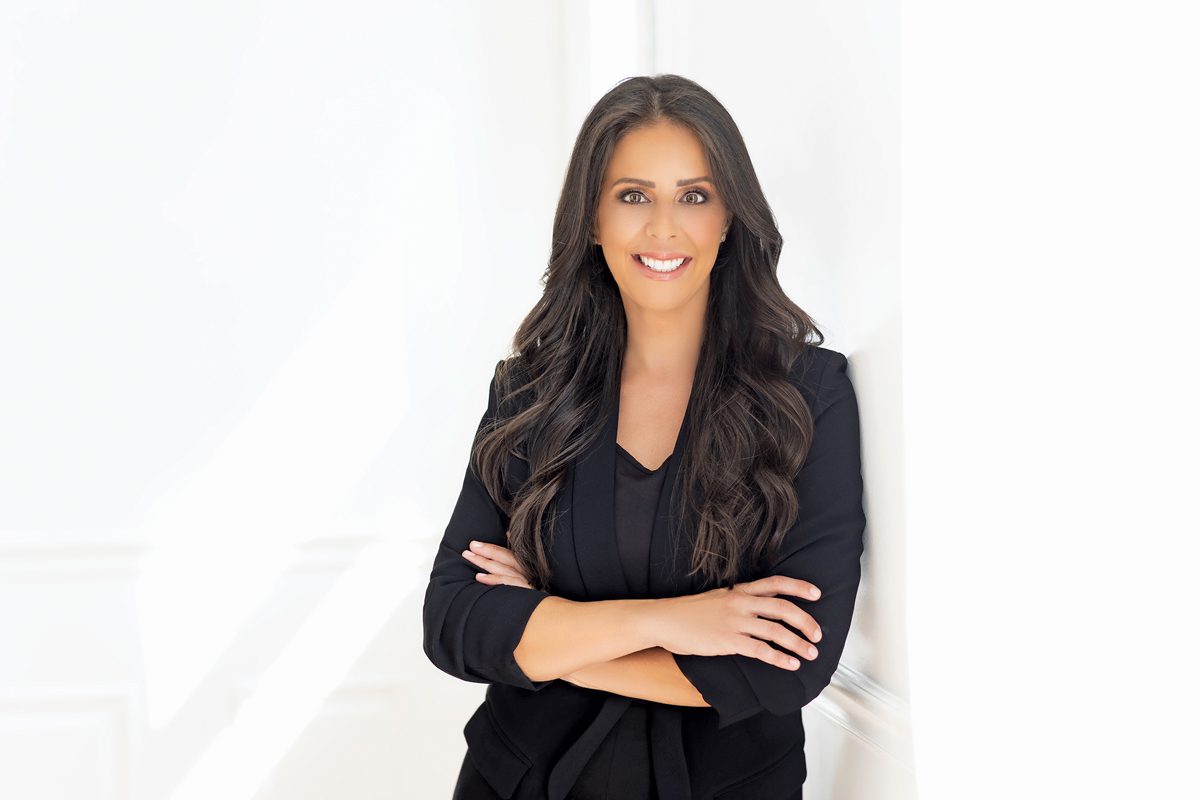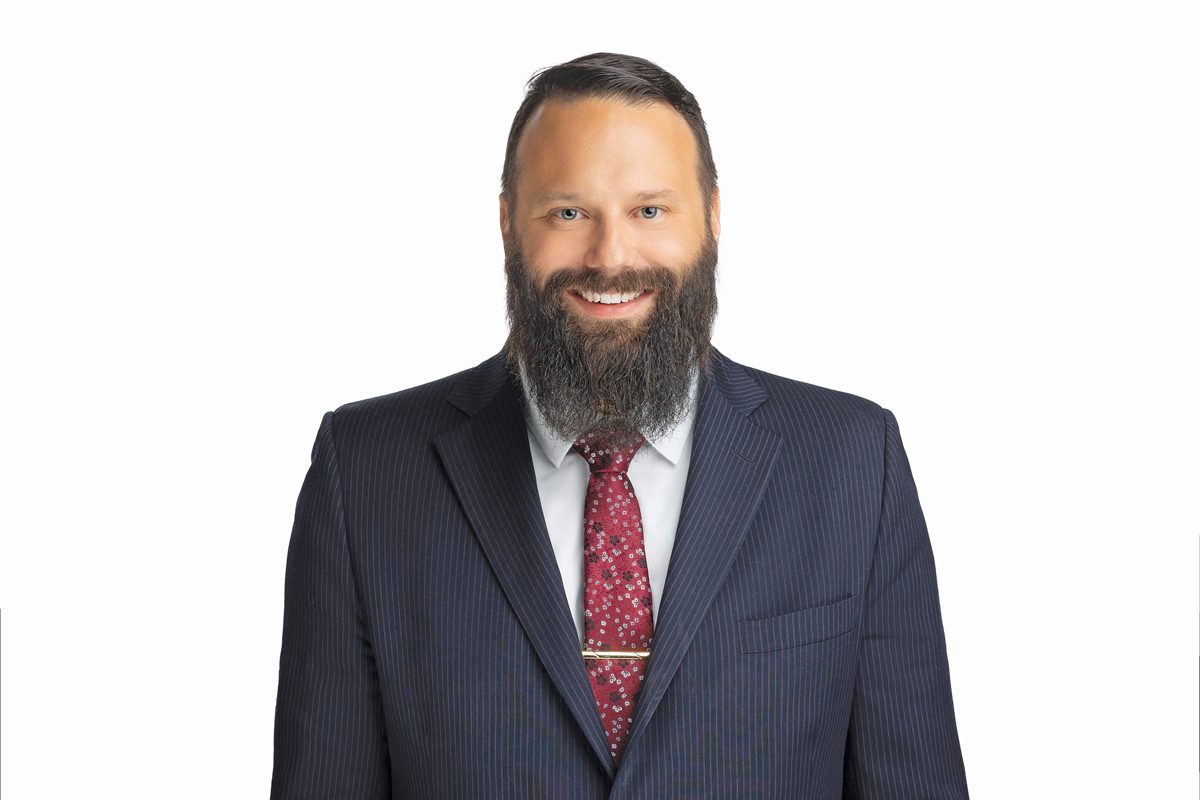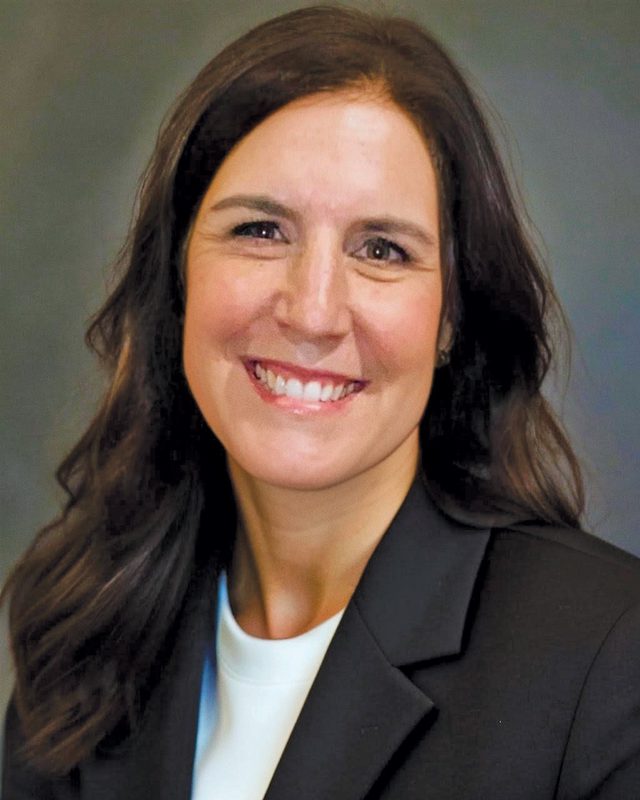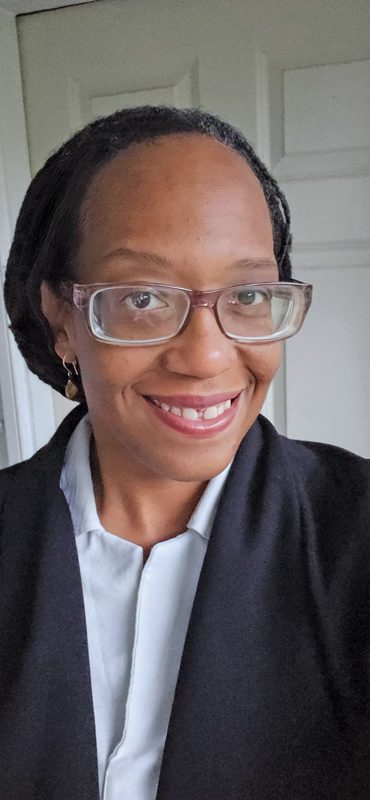The 22nd Circuit Court’s Tim Connors’ term expires in January and the 15th District Court’s Joseph Burke plans to retire at the end of December. Both seats are for six-year terms, but the job usually winds up being for life or until mandatory retirement at seventy, because sitting judges seldom face challengers. When they do, they almost never lose.
For the circuit court seat, Jinan Hamood, forty-two and a sole practitioner, faces Jeffrey Worosz, forty, who works in a five-attorney office.
“They do a little bit of everything,” says Worosz of the circuit court. “They do felony criminal matters—which felonies are punishable by over a year in jail. They do family law domestic cases such as divorce, custody issues. They do juvenile cases and they do civil litigation disputes of all sorts that are over $25,000.” Hamood adds that they also do “personal protection orders, juvenile court proceedings, [and] child special protective proceedings.”
For the district court seat, Tamara Garwood, fifty-one, the court’s current magistrate, faces S. Kerene Moore, forty-four, director of the conviction integrity and expungement unit for the county prosecuting attorney’s office.
“We handle civil cases,” Garwood explains, “so people suing people for less than $25,000 is within our jurisdiction. We are the starting point for all criminal cases,” handling misdemeanors “from start to finish.” For felony cases, they hold arraignments and decide if there’s probable cause to refer them to circuit court.
“And in 15th District Court, we have three treatment courts,” Moore adds: “Veterans Treatment Court, Mental Health Court, and Sobriety Court.”

Attorney Jinan Hamood is competing for the 22nd Circuit Court seat that became available with the retirement of longtime judge Tim Connors. | Photo courtesy of Jinan Hamood
“I became a lawyer because I liked helping people,” says circuit court candidate Hamood. “I’m from Lebanon, so the legal system and the country that I come from is very different. [And] as an attorney, I saw the impact that judges could have on a much larger level.
“I do criminal defense, family law, and civil litigation,” Hamood explains. “I’ve had experience in all three different fields, and I see the impact, for example, that a judge can have on a case that’s pending in criminal court in terms of sentencing. I have a vast experience in family court working on very complex divorce matters. I am in our courts weekly, sometimes almost daily.”
Hamood believes she’s the best candidate because “empathy is a lawyer’s greatest tool. And I found that being able to put yourself in someone else’s shoes and consider their experiences and backgrounds, it helps you to connect with them and really understand where they’re coming from.”
Hamood’s endorsements include circuit court judges Carol Kuhnke and Patrick Conlin.

Attorney Jeffrey Worosz is also competing for the 22nd Circuit Court. | Photo courtesy of Jeffrey Worosz
“I’ve always wanted to be a judge,” says candidate Worosz. “That’s what drew me to being a lawyer in the first place.” He says he’s “primarily handled domestic relations, family law cases, and civil litigation disputes in my career. I’ve also done a fair amount of probate litigation. … Probate court obviously isn’t the same issues but [follows the] same rules of evidence and the like in terms of presenting a case.”
Worosz thinks he’s the best candidate because “it’s important that the law gets applied fairly to everyone. In a lot of the courtrooms I sat in, you could see when people were being treated differently. And a lot of times it happened when people didn’t have attorneys—you know, the judges almost seemed annoyed by them. And so that’s one big thing for me, is making sure that people that can’t afford attorneys have the opportunity to be heard and heard effectively.”
Both candidates say they take the prospect of having the job for life very seriously. “I’ve seen judges sometimes maybe kind of harden on the job,” says Hamood. “But I think you have to always try to approach each circumstance, each case each day with a fresh set of eyes and a fresh mind.”
“This is a job that I would want for as long as I can do it or at least until I turn seventy and can’t run,” says Worosz. “This isn’t small claims court. … These are big issues involving big property rights, big freedom rights, big rights in general.”
Worosz is the only one of the four candidates with no endorsements on his website. “I haven’t sought any,” he writes. “I made the decision when I entered the race that I would focus my candidacy on connecting directly with members of the community, rather than specific individuals or organizations.”

In the 15th District Court, Joseph Burke’s retirement opened an opportunity for the court’s magistrate, Tamara Garwood. | Photo courtesy of Tamara Garwood
As the district court’s magistrate, Garwood says, “I’m on call twenty-four hours a day, seven days a week, as long as I’m in the state of Michigan, to make probable cause determinations for search warrants for any one of the fourteen agencies that we deal with.” In addition, “I preside over our small claims division [for] people suing people or companies for less than $7,000. No attorneys are involved. I do our civil infraction docket—so you get a parking ticket, you get a speeding ticket, those all come to me.”
“One of the best training places to be on the bench is being on the bench,” Garwood continues. “And that’s what I’m doing every day, making those probable cause determinations, making decisions of guilt and innocence. I think that has well prepared me and well equipped me to go up the next level to be judge.”
She “would like the opportunity to make a bigger difference and make greater change in our court. … I can impact a greater change when it comes to sentencing and when it comes to really setting the tone for how we handle crime in the city of Ann Arbor.”
Garwood is endorsed by circuit court judges Conlin and Julia Owdziej.

Kerene Moore, director of the conviction integrity and expungement unit for the county prosecuting attorney’s office, is running for 15th District Court Judge. | Photo courtesy of Kerene Moore.
Moore says she’s running because she believes “in increasing access to justice, supporting restorative justice, and protecting victims’ rights.” She says her work for the prosecuting attorney’s office will inform her work as judge.
“Conviction Integrity Units across the country investigate and review claims of actual innocence,” she explains in an email. “My unit facilitates expungement support and referrals, and I spend the bulk of my time directing innocence investigations [which] serves the purpose of undoing historic harms, and working to ensure that we do not repeat past mistakes.”
“If you are on the bench, you really have the ability to make a difference,” she says by phone. “You really do have the ability to actually give people a voice in the courtroom and make sure that everybody’s getting their fair day in court.”
Moore is endorsed by retired Michigan Supreme Court justice Bridget Mary McCormack and retired state court of appeals judge Elizabeth Gleicher.
Moore can see it being a job for life. “The disparities with our justice system are so entrenched that it really does take long-term commitment to get at those issues.”
From her experience as magistrate, Garwood says, “Being judge itself, regardless of how long you are a judge, is a really incredible responsibility. And what I’ve discovered is it’s really a humbling job.”
Campaigning for judge is just like campaigning for any other public office: the candidates are knocking on doors, attending forums, marching in parades, and raising money for websites, campaign signs, and ads. Hamood says her goal is $150,000 and Moore and Garwood hope to raise $75,000 each.
Worosz, the only judicial candidate without a professional campaign manager (his wife is filling the role), says he doesn’t have a numerical goal but aims to raise enough “to get my name and campaign information into the community.”